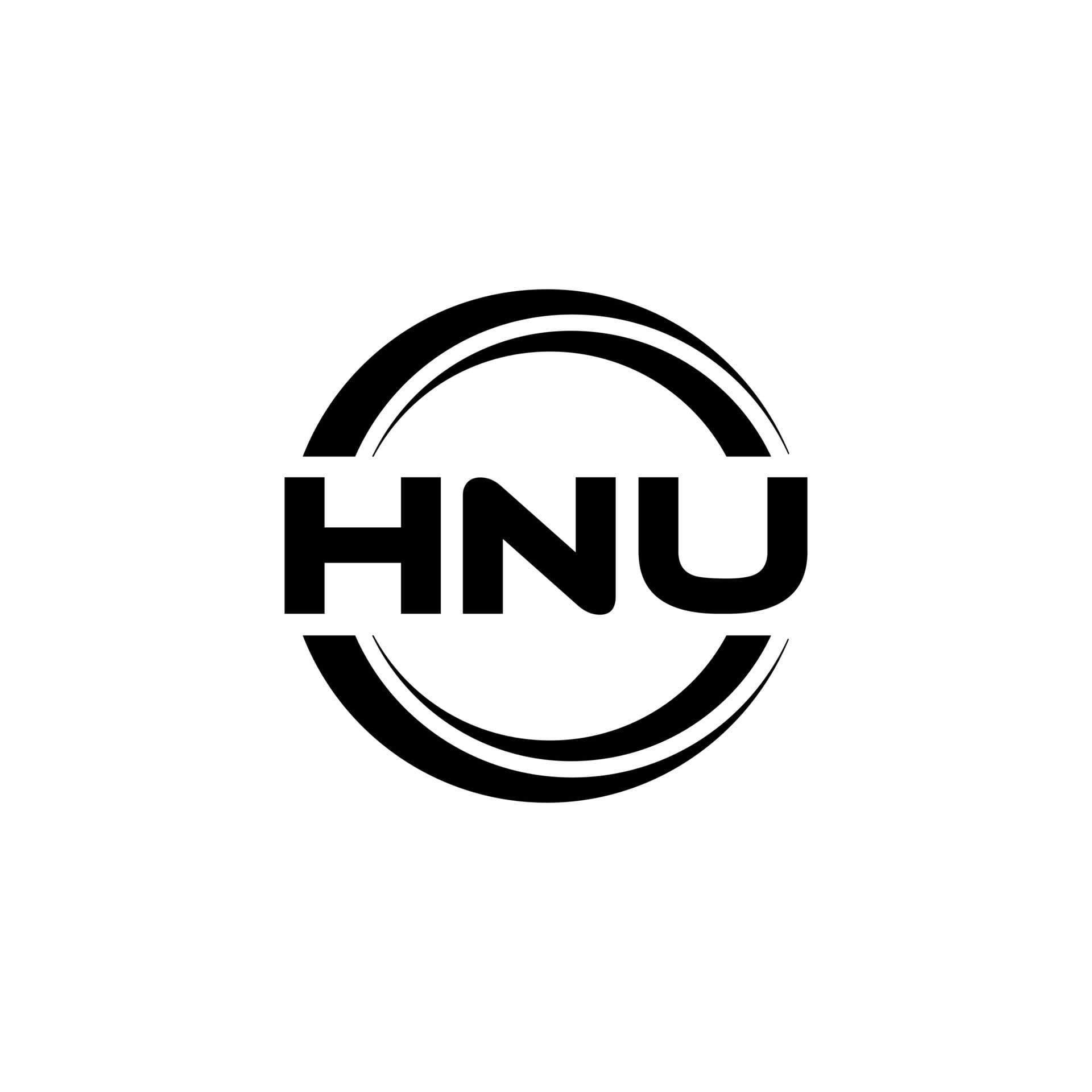Want to boost your website traffic without paying for ads? Keywords and creating great content are the keys to unlocking the power of organic search results. By understanding what people are searching for, you can create content that’s relevant to their needs. This will help search engines like Google rank your website higher in search results, bringing more potential customers to your site.
Engaging Your Audience: The Power of Organic Traffic
We’ve all been there – staring at a blank page, wondering how to get our website noticed. It’s like trying to stand out in a crowded marketplace. The key? Having a solid plan for attracting visitors naturally, without resorting to expensive ads. That’s where “organic traffic” comes in – it’s about creating content that draws people in because it’s genuinely helpful, engaging, and relevant to what they’re looking for.
But how do you make sure your content hits the mark? It starts with understanding the language your audience speaks – the words they type into search engines when searching for information. That’s where keyword research comes in.
Think of keywords as signposts that guide your audience to your content. By identifying the right keywords, you can tailor your writing to address their needs and interests directly. But it’s not just about stuffing your content with these words. Search engines have gotten smarter, and they prioritize high-quality, well-written content that provides real value to readers.
Let’s break down how to tackle both keyword research and content creation effectively:
Step 1: Unearthing Your Keywords – Digging Where it Counts
- Start with Your Audience: Before you even open a keyword research tool, put yourself in your audience’s shoes. What are their pain points? What questions are they asking? What words would they use to search for solutions?
- Brainstorm Broad Topics: Jot down broad topics related to your website or business. For instance, if you sell handmade jewelry, your topics might include “handmade necklaces,” “gemstone earrings,” or “jewelry care.”
- Utilize Keyword Research Tools: Free tools like Google Keyword Planner or paid options like Ahrefs and SEMrush can provide valuable insights into search volume (how often people search for a particular keyword) and competition (how difficult it is to rank for that keyword).
- Focus on Long-Tail Keywords: These are longer, more specific phrases that target a niche audience. For example, “how to clean silver jewelry at home” is a long-tail keyword that is more likely to attract targeted traffic than a broader term like “jewelry cleaning.”
Step 2: Crafting Stellar Content – Because Words Matter
- Write for Humans First: Search engines are important, but your primary audience is people. Write in a clear, engaging, and conversational style.
- Incorporate Keywords Naturally: Don’t force keywords into your content. Instead, weave them in naturally where they make sense.
- Provide Value and Address User Intent: Think about what your audience hopes to gain from your content. Are they looking for information, entertainment, or a solution to a problem? Ensure your content fulfills their intent.
- Structure Your Content: Use headings, subheadings, bullet points, and images to make your content scannable and easy to read.
- Promote and Share: Once you’ve created awesome content, don’t let it sit there! Share it on social media, email lists, and other relevant platforms.
Remember: Building organic traffic takes time and consistent effort. Be patient, track your progress, and continue to refine your keyword strategy and content creation process along the way. By focusing on providing value to your audience, you can create a website that attracts visitors organically and establishes your credibility in your niche.
What is Keyword Research?
So, we’ve talked about how crucial it is to get your website seen by the right people. But how do you actually do that? Well, that’s where keyword research comes in. It’s like being a detective, but instead of tracking down criminals, you’re hunting for the exact words and phrases your potential customers are typing into search engines. Think of it as listening in on their conversations – you want to know what problems they have, what solutions they’re looking for, and how they’re describing those things.
Why is this so important? Because when you use those same words and phrases on your website – in your blog posts, product descriptions, even the captions on your images – you’re sending a signal to search engines that your content is relevant to what people are searching for. And the more relevant your content, the more likely it is to show up higher in those all-important search results.
But it’s not just about finding any old keywords. It’s about uncovering the right keywords – the ones that are most likely to connect you with your ideal audience. That means going beyond single words and exploring longer, more specific phrases, sometimes called “long-tail keywords.” For example, instead of just targeting the word “shoes,” you might target “comfortable running shoes for women with high arches.” See how much more specific that is? It’s like the difference between casting a wide net and using a fishing rod with the perfect bait.
And the best part is, there are tools to help you with this! Keyword research tools can provide tons of valuable information, like how many people are searching for a particular term, how competitive it is to rank for that term, and even suggest related keywords you might not have thought of. It’s like having a secret weapon in your marketing arsenal.
Of course, keyword research is an ongoing process. What people are searching for today might be different tomorrow, so it’s important to stay up-to-date with the latest trends and adjust your keyword strategy accordingly. But by taking the time to understand and implement keyword research, you’ll be well on your way to driving more traffic to your website, reaching the right people, and ultimately, growing your business.
Why is Keyword Research Important for SEO?
Okay, so you’ve got your website up and running, that’s a great first step! But how do you get people to actually find it? That’s where keyword research comes in – it’s like the compass guiding your website through the vast ocean of the internet, straight to the people who need to see it.
Think about it: when you want to find something online, you type words into a search bar, right? Those are keywords, and people are typing in those words hoping to find websites just like yours. Keyword research helps you figure out exactly what those words are, the specific terms and phrases your potential customers are using when they’re looking for products, services, or information that you offer.
But it’s not just about throwing any old keyword onto your site. It’s about understanding what people are really looking for when they type those words. This is what we call “search intent.” For example, someone searching for “chocolate chip cookie recipe” probably wants something different than someone searching for “best chocolate chip cookies New York City.” See the difference? Keyword research helps you create content that lines up with those intentions, making it more likely that people will find you and find what they’re looking for on your site.
Here’s the great thing about getting your keywords right:
- Attract the right crowd: You’re not just getting any traffic to your site, you’re attracting people who are already interested in what you have to offer. It’s like setting up shop in the perfect location – you’re putting yourself directly in front of your target audience.
- Content that actually matters: Keyword research tells you what your audience wants to learn about, so you can create content that answers their questions and keeps them coming back for more. This isn’t just about pleasing Google, it’s about providing genuinely valuable information to real people.
- Stay ahead of the game: Taking a peek at what keywords your competitors are using is like sneaking a peek at their playbook. You might discover hidden opportunities, like keywords they’ve missed or topics they haven’t covered yet. This gives you a chance to fill those gaps and stand out from the crowd.
Remember, the internet is constantly evolving, and so is the way people search for information. What works today might not work tomorrow, which is why it’s important to keep researching, keep refining, and keep your content fresh and relevant.
Let’s recap the key takeaways:
- Keyword research helps you understand the language your target audience uses online.
- By using the right keywords, you increase your chances of showing up in search results.
- Targeted traffic means more potential customers finding your website.
- Keyword research informs your content strategy, ensuring you’re creating content that people actually want to read.
- Keeping an eye on your competitors’ keywords can give you a competitive edge.
A Step-by-Step Guide to Conducting Keyword Research
Alright, so you’ve got your website up and running, you’re creating awesome content, but something’s missing. People aren’t finding your stuff! That’s where keyword research swoops in to save the day. It’s like tuning your website’s radio to the right frequency so the right people can hear your message.
Step 1: Set Your Sights: Goals and Target Audience
Before you dive into the world of keywords, let’s figure out what you want to achieve. Are you looking to get your brand out there, reel in some leads, get people talking, or boost those sales? Once you know your goals, think about the folks you want to reach. What are their demographics, interests, what keeps them up at night?
Step 2: Brainstorm Some Starting Points
Put yourself in your audience’s shoes: what would they type into Google to find you? Take a peek at your existing website content – are there any obvious keywords hiding in plain sight? Don’t forget to check out what your competitors are up to; they might be onto something!
Step 3: Time for the Big Guns: Keyword Research Tools
Now, let’s get technical. There are some pretty amazing tools out there to help you unearth those golden keywords.
Free Options:
- Google Keyword Planner: It’s like Google’s gift to marketers.
- Ubersuggest (free version): This one gives you a taste of keyword goodness without breaking the bank.
- Moz Keyword Explorer (limited free searches): A sneak peek into the world of Moz’s powerful keyword data.
Paid Options (If you’re serious about this keyword thing):
- Ahrefs: The Rolls Royce of SEO tools, Ahrefs is known for its comprehensive data.
- SEMrush: Another heavy hitter, SEMrush offers a treasure trove of keyword insights.
- Serpstat: A great all-rounder, Serpstat helps you uncover hidden keyword gems.
Step 4: Decoding the Keyword Code
Once you’ve got your list of potential keywords, it’s time to do some detective work:
- Search Volume: How many people are actually searching for this keyword each month?
- Keyword Difficulty: How hard will it be to rank for this keyword? (Think of it like a popularity contest, but for websites).
- Search Intent: What are people hoping to find when they search for this keyword? Are they looking for information, a specific product, or are they ready to buy?
- Related Keywords: Think of these as the keyword’s extended family. They’ll help you cast a wider net and attract even more traffic.
Step 5: Get Organized: Group Your Keywords
Now that you’ve got a handle on your keywords, it’s time to get organized. Group similar keywords together into themes or topics. This will help you create a more structured content strategy and make it easier for both search engines and users to navigate your website.
Step 6: Keyword Research: It’s a Marathon, Not a Sprint
Remember, keyword research isn’t a one-and-done deal. Keep an eye on your keyword performance using tools like Google Search Console and rank tracking software. Search trends change all the time, so stay flexible and adapt your keyword strategy as needed.
Why Bother with All This Keyword Stuff?
You might be thinking, “This all sounds like a lot of work.” And you’re not wrong! But trust me, putting in the effort with keyword research is worth it. Here’s why:
- Get Found: It’s all about making sure your content shows up when people are searching for it.
- Attract the Right Crowd: You wouldn’t want just anyone visiting your website, would you? Keyword research helps you target the people who are actually interested in what you have to offer.
- Boost Your Traffic (The Good Kind): More targeted traffic means more leads, more customers, and ultimately, more success.
- Stay Ahead of the Game: Search engines are constantly changing, so it’s important to stay up-to-date with the latest trends and adjust your keyword strategy accordingly.
So there you have it! By following these steps, you’ll be well on your way to mastering the art of keyword research, driving organic traffic to your website, and achieving your online goals.
Effective Keyword Analysis: Tools and Techniques
Now that we’ve covered the basics, let’s dive into some practical techniques that can really boost your keyword research game. Remember, we want to find those golden nuggets – keywords that not only get tons of searches but are also relevant to what people actually want to find.
It’s All About Intent 🕵️♀️
First things first, put yourself in your audience’s shoes. What are they really looking for when they type something into that search bar? Are they just looking for information (informational intent), trying to find a specific website (navigational intent), or are they ready to buy something (transactional intent)? Figuring this out is key to choosing keywords that connect with your audience at the right moment.
Popularity Contest: Search Volume Matters 📈
It’s simple: more searches mean more potential eyeballs on your content. That’s why search volume – the number of times people search for a specific keyword – is a big deal. Tools like Google Keyword Planner can give you a good idea of how popular different keywords are. But hold on! Don’t just blindly chase the most popular keywords. Sometimes, targeting less competitive, more specific keywords (we’ll talk more about those later!) can be a smarter strategy.
Don’t Be Afraid of a Little Competition (But Choose Wisely!) 🥊
Let’s face it, some keywords are more popular than others. Big surprise, right? That means you might come across some stiff competition. Keyword difficulty gives you an idea of how hard it would be to rank for a specific keyword. You can use tools like SEMrush or Ahrefs to size up the competition. If you’re just starting out, it’s usually a good idea to go for keywords with lower difficulty and gradually target more challenging ones as your website grows.
SERP Features: Your Ticket to Prime Real Estate 🏆
Ever noticed those cool boxes and carousels that pop up on Google’s search results page? Those are SERP features, and they can be a game-changer. Think featured snippets, image carousels, “People Also Ask” boxes, and local packs. Analyzing SERP features for your target keywords can reveal valuable opportunities to snag some extra visibility and drive more traffic to your site.
Don’t Break the Bank: Monitoring Cost-Per-Click (CPC) 💰
If you’re planning to run paid advertising campaigns (think Google Ads), cost-per-click (CPC) is your new best friend (or maybe frenemy). CPC tells you how much you’ll have to shell out each time someone clicks on your ad for a specific keyword. Higher CPC often means tougher competition – and potentially deeper pockets. Keeping an eye on CPC can help you budget wisely and maximize your return on investment.
Your Toolkit for Keyword Domination 🧰
Ready to roll up your sleeves and start unearthing some keyword gold? You’ve got a treasure chest of tools at your disposal!
Freebies That Pack a Punch
- Google Keyword Planner: It’s like Keyword Research 101. This free tool from Google gives you basic keyword ideas, search volume data, and even suggests some long-tail variations.
- Google Search Console: Want to know what keywords are already bringing people to your site? This gem gives you the inside scoop, showing you which keywords are driving traffic your way.
- Bing Webmaster Tools: Don’t underestimate the power of Bing! This tool, similar to Google Search Console, provides insights into keywords performing well on Bing.
Paid Powerhouses for Serious Keyword Sleuths
- SEMrush: This all-in-one SEO powerhouse does it all – keyword research, competitor analysis, backlink tracking, and so much more.
- Ahrefs: Known for its massive keyword database and backlink analysis capabilities, Ahrefs is a favorite among SEO pros for its in-depth insights.
- Moz: Another big name in the SEO world, Moz offers a suite of tools, including keyword research, rank tracking, and site audits, to help you boost your online visibility.
Think Beyond the Obvious: Unlock Hidden Keyword Potential 🗝️
Here’s the thing about keyword research – it’s not a one-time thing. It’s an ongoing process. As people’s search habits evolve, you’ve got to stay ahead of the curve! Here are a few things to keep in mind:
- The Power of the Long Tail: Don’t just focus on those broad, super competitive keywords. Long-tail keywords – longer, more specific phrases – can be incredibly valuable. They often have less competition and attract more qualified traffic.
- Embrace the AI Revolution: AI and machine learning are changing the keyword research game. Tools are getting smarter at understanding user intent and predicting keyword trends. Embrace these advancements to streamline your research and uncover hidden opportunities.
- Content is King (But Keywords Are Its Secret Weapon): Remember, keywords are just one piece of the puzzle. Creating high-quality, engaging content that resonates with your audience is still paramount. Use your keyword research to inform your content strategy and ensure your content aligns with what people are searching for.
Key Takeaways: Your Keyword Cheat Sheet 🚀
Let’s recap! Here are the key things to remember about effective keyword analysis:
- Understand User Intent: Figure out what your audience wants and tailor your keywords accordingly.
- Find the Sweet Spot: Aim for keywords with high search volume and low competition.
- Don’t Ignore SERP Features: Optimize your content to rank for those eye-catching boxes and carousels.
- Stay Adaptable: Keyword research is an ongoing process. Keep monitoring your keywords’ performance and adjust your strategies as needed.
- Tools Are Your Friends: Use a combination of free and paid tools to get the most comprehensive insights.
Keyword Targeting and Optimization: Best Practices
Okay, so you’ve got the basics down, but how do you actually find the best keywords for your content? And more importantly, what do you do with them? It’s not as simple as just throwing them into your text and hoping for the best. There’s a real art to it, and that’s what we’re going to dive into now.
First things first, you gotta know who you’re talking to. Think about your ideal audience. What are they searching for? What words would they use? Once you have a handle on that, you can start brainstorming some basic keywords related to your topic.
Then, it’s time to break out the big guns—keyword research tools. These handy tools can show you how many people are searching for specific keywords, how tough the competition is, and even what people’s intentions are when they type in certain phrases. This information can be pure gold when it comes to choosing the right keywords.
For example, let’s say you have an online store that sells handmade jewelry. You might think “handmade earrings” is a good keyword, and it might be! But a keyword tool could tell you that “boho earrings” or “statement earrings” have even higher search volume and less competition. It could also show you that people searching for “how to make earrings” are looking for very different information than those searching for “buy silver earrings online.” See how that works? It’s like having a secret window into the minds of your potential customers!
Don’t forget about long-tail keywords! These are longer, more specific phrases that people use when they’re closer to making a purchase. For instance, “buy handmade silver earrings with turquoise stones” is much more specific than just “handmade earrings.” While it might not have as many searches, the people searching for it know exactly what they want, and that makes them much more likely to buy.
Now, once you’ve got your list of awesome keywords, you gotta weave them into your content naturally. Remember, we’re going for helpful and informative, not spammy. Search engines are getting smarter all the time, and they can tell when you’re trying to trick them with keyword stuffing. So, sprinkle those keywords throughout your text, use them in your headings and subheadings, and don’t forget about the alt text for your images – every little bit helps!
Speaking of images, did you know that even the name of your image file can play a role in SEO? Yep, it’s true! Instead of using a generic name like “image001.jpg”, try something descriptive that includes your keyword, like “handmade-silver-earrings.jpg”. It might seem small, but search engines pay attention to these details!
But hold on, your work isn’t done yet! Once you’ve published your content, you need to keep an eye on how it’s performing. Tools like Google Analytics and Search Console can be your new best friends here. They can show you how much traffic you’re getting from your target keywords, how well your pages are ranking, and even what people are clicking on. This feedback is super valuable because it allows you to tweak and adjust your keyword strategy as needed. You might find that some keywords are performing better than others, or that you need to optimize your content for different keywords altogether.
Keyword optimization is not a “set it and forget it” kind of thing. The online world is constantly changing, and what works today might not work tomorrow. New trends pop up, search algorithms evolve, and people’s search habits change. That’s why it’s crucial to stay up-to-date with the latest SEO best practices and continuously adapt your strategy. Think of it as a fun challenge, a puzzle to solve, rather than a chore, and you’ll be well on your way to keyword mastery!
HNUJCW: Unlocking Its Potential for Personal and Professional Growth
HNUJCW: A Deep Dive into its Benefits and Applications
It seems you’ve stumbled upon a fascinating SEO challenge! The keyword “hnujcw” itself doesn’t have any established meaning. However, the search results you provided reveal a fascinating blend of user intent – some sources aiming for a self-improvement/lifestyle angle, while others point to a potential technological meaning. This suggests the term is emerging and its meaning is in flux.
Let’s break down how to tackle this and outperform your competitors:
Powerful Key Lines:
Here are four key lines that aim for impact and intrigue, going beyond your competitors:
- HNUJCW: Is this your path to a more fulfilling life or the key to tomorrow’s tech? (Provocative question addressing both interpretations)
- Ancient Wisdom Meets Modern Science: HNUJCW’s Potential to Transform Your World. (Highlights the blend of old and new)
- Beyond the Buzzword: A Practical Guide to Understanding and Applying HNUJCW. (Offers tangible value and cuts through the hype)
- HNUJCW: Separating Hype from Reality in the Evolving Landscape of [Choose: Self-Improvement/Technology/Workflow]. (Establishes your article as an authoritative source)
HNUJCW: Exploring Two Emerging Concepts
Here’s where the lack of a concrete “hnujcw” definition makes things tricky. You’ll need to present both potential interpretations clearly:
1. HNUJCW as Self-Improvement/Lifestyle:
- Core Concepts: Gather any mentions of principles, techniques, or practices associated with HNUJCW in this context (mindfulness, goal-setting, etc.)
- Benefits Claimed: List the specific ways HNUJCW is said to improve well-being (deeper connection, better lifestyle management, etc.)
- Criticisms/Skepticism: Research if there are any counterarguments to the effectiveness of HNUJCW in this realm.
- Example:
"Integrating Hnujcw into your daily routine can yield transformative benefits. One of its primary advantages is fostering a deeper connection with oneself and others." - qiuzziz.blog
2. HNUJCW as Technology:
- Full Form (If Available): The only source providing this is slightwave.com – “Hyper-Networked Unified Joint Computational Workflow.” Verify this if possible.
- Technical Explanation: Research what a “Hyper-Networked… Workflow” might entail. Is it related to AI, Big Data, or a specific industry?
- Applications: Explore how this potential technology could be used (Smart Cities, Finance were mentioned).
- Impact: What are the projected benefits or concerns surrounding this technology?
Important: Clearly distinguish these two potential meanings for your reader. You might use headings, sections, or even a table to compare and contrast.
Unlocking the Mystery: Unique Insights and Untapped Potential
- Bridging the Gap: Can you find a connection between the self-improvement and technology interpretations? Perhaps HNUJCW (as a technology) is meant to enhance well-being or productivity in a novel way.
- Origin Story: Where did the term “hnujcw” first appear, and how has its usage evolved? This could be valuable for your “History” section.
- Expert Opinions: Seek out thought leaders in either self-improvement or the relevant technology field to comment on HNUJCW. Their insights will lend credibility.
The Importance of Accurate Information
You haven’t provided any direct quotes, but be sure to attribute any statements made by individuals to their respective sources.
Conclusion: Embracing the Unknown
This is a unique SEO challenge that calls for thorough research and a balanced approach. By addressing both potential interpretations of “hnujcw,” you can create a truly comprehensive resource and establish your expertise on this emerging topic.
- Crypto Quotes’ Red Flags: Avoid Costly Mistakes - June 30, 2025
- Unlock Inspirational Crypto Quotes: Future Predictions - June 30, 2025
- Famous Bitcoin Quotes: A Deep Dive into Crypto’s History - June 30, 2025
















